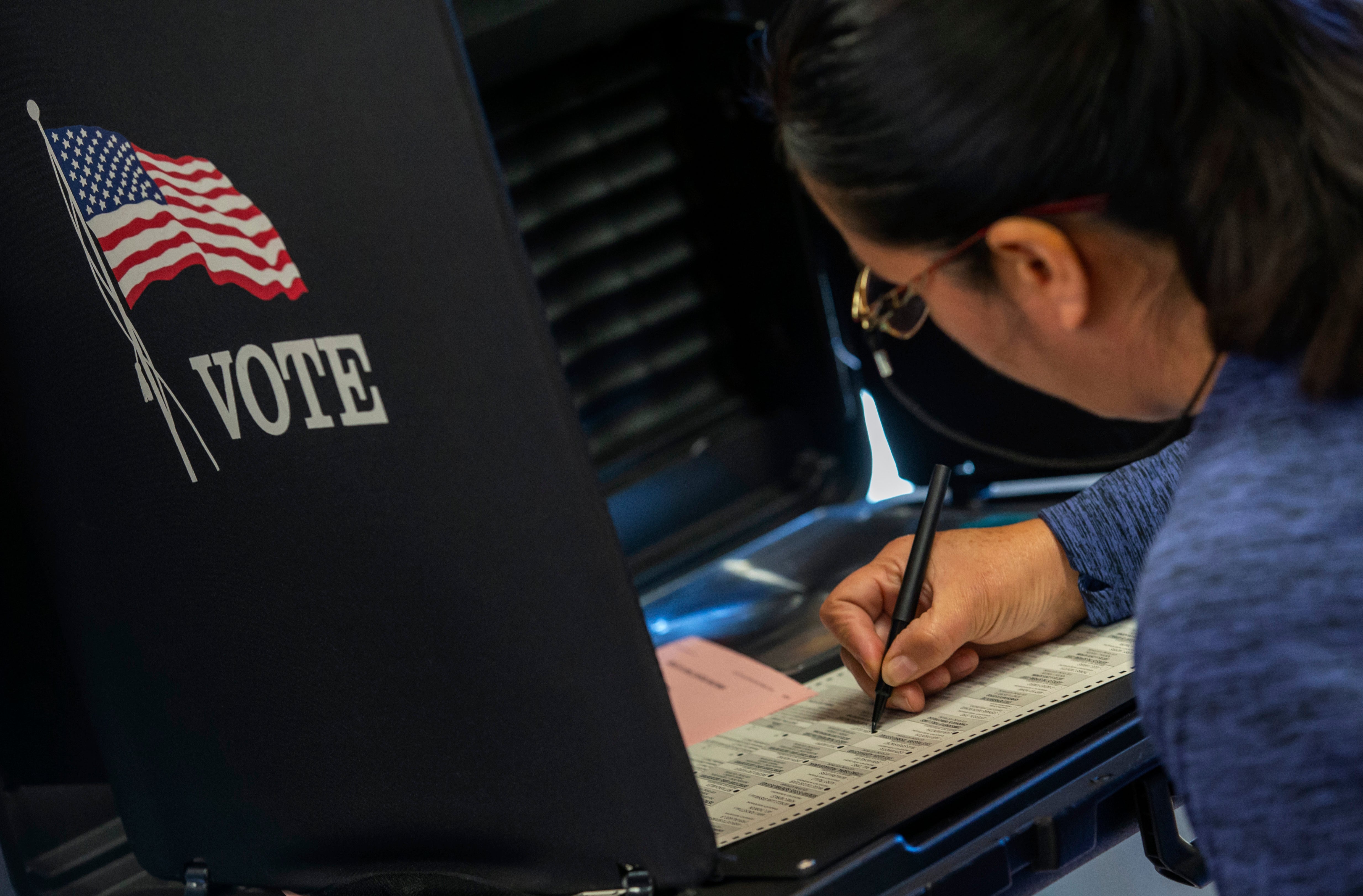New Mexico residents with felony convictions are wrongly being denied ballot access, lawsuit says
A new lawsuit alleges that some New Mexico residents with felony convictions have been wrongly denied ballot access despite state lawmakers restoring their voting rights

Your support helps us to tell the story
From reproductive rights to climate change to Big Tech, The Independent is on the ground when the story is developing. Whether it's investigating the financials of Elon Musk's pro-Trump PAC or producing our latest documentary, 'The A Word', which shines a light on the American women fighting for reproductive rights, we know how important it is to parse out the facts from the messaging.
At such a critical moment in US history, we need reporters on the ground. Your donation allows us to keep sending journalists to speak to both sides of the story.
The Independent is trusted by Americans across the entire political spectrum. And unlike many other quality news outlets, we choose not to lock Americans out of our reporting and analysis with paywalls. We believe quality journalism should be available to everyone, paid for by those who can afford it.
Your support makes all the difference.Some New Mexico residents with felony convictions have been wrongly denied ballot access despite state lawmakers restoring their voting rights last year, a lawsuit alleges.
A law that took effect in July 2023 restored voting rights to about 11,000 people in New Mexico who previously served prison time for felony convictions. It allows people to vote after they are released from custody, including those who are on probation or who have been granted parole.
But a lawsuit filed last week in Santa Fe by Millions For Prisoners, a group that advocates for people who are incarcerated or used to be, claims that some applicants seeking to have their voting rights restored have received rejection letters from county clerks relying on inaccurate or outdated information from the secretary of state's office and the New Mexico Corrections Department, the Albuquerque Journal reported. It names as defendants Secretary of State Maggie Toulouse Oliver and the corrections department.
Alex Curtas, a spokesperson for Toulouse Oliver, said in a statement to the newspaper that the secretary of state's office is committed to ensuring ballot access to every eligible voter, and that as of last month, hundreds of people had successfully registered to vote since leaving prison.
A corrections department spokesperson declined to comment on the pending litigation.
The lawsuit also accuses Toulouse Oliver and at least one county clerk of creating an additional barrier to voting access by requiring in-person registration for those who were denied.
"Certainly, if a person is no longer incarcerated and appears in-person at a County Clerk’s Office, polling location, certain state agencies, or the motor vehicle division, that person is now legally presumed to meet the requirement of not being incarcerated and can register to vote,” Curtas said in a statement to the newspaper.
The lawsuit is seeking a court order that would bar election officials from enforcing the in-person registration requirement for voters with felony convictions. It also wants Toulouse Oliver to instruct all county clerks in the state to process the voter registration forms that have been rejected since July 1, 2023, when the law took effect.